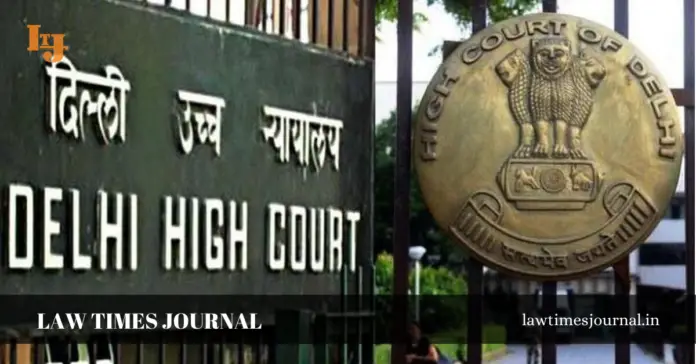
A notice was issued by a Single Judge Bench of Justice Navin Chawla of the Delhi High Court in a petition preferred by a final-year student of NLIU Bhopal, Ankit Gupta challenging the exorbitant additional fees being charged by the Bar Council of Delhi and Bar Council of India at the time of enrolment of advocates.
Prior Facts:
In his petition before the High Court, Gupta has stated that as per Section 24(1) (f) of the Advocates Act, 1961, for being admitted as an advocate, a person has to pay Rs 600 to the respective State Bar Council and Rs 150 to the Bar Council of India. In case of a member of the Scheduled Castes or the Scheduled Tribes, the enrolment fee payable by him to the respective State Bar Council is Rs 150 and Rs 25 to the Bar Council of India.
Key Features:
- The petition states that the Bar Council of Delhi charges an additional fee of Rs. 8,350 (excluding Rs. 1,000 towards enrolment form). Furthermore, Bar Council of Delhi charges an additional amount of Rs. 3,000 towards circulation fee, in case, an applicant wishes to expedite the process of his enrolment.
- The petitioner contended it illegal and stated that such a levy is not provided for in the Act.
- The charged fee was arbitrary and de hors the provisions of the Act.
- It is added that this additional fee is towards various funds constituted by the Bar Council of Delhi.
- The petitioner submits that as per Section 6(2) of the Advocates Act, 1961, the State Bar Council is empowered to constitute one or more such funds only for the purposes of giving legal aid, financial assistance to welfare schemes for the indigent, disabled and other advocates, and establishing law libraries.
- Thus, all the funds that have been established contrary to the mandate of Section 6(2) are illegal, arbitrary and de hors the provisions of the Advocates Act, 1961, the petition states.
- It is claimed that the Advocates Act, 1961 does not envisage levy of any fee for such transfer and it was thus ultra vires Section 18 of the Advocates Act, 1961.
- It is added that the levy of Rs 2,000 by the Bar Council of India and Rs 1.000 by the Bar Council of Delhi in case of transfer from the Delhi roll to another roll.
- He submitted that Section 18 of the Advocates Act, 1961 is crystal clear that transfer of name from one state roll to another is to be done without payment of any fee. However, the Bar Council of India charges Rs. 2000 as process fee and similarly Bar Council of Delhi charges Rs. 1000 towards granting NOC for such transfer.
Judgement:
After the single member bench of Delhi High Court issued the notice to the Bar Council of India and the Bar Council of Delhi, the matter will now be heard next on May 13.
Edited by J. Madonna Jephi
Approved & Published – Sakshi Raje
Reference:
- Case of Ankit Gupta vs. Bar Council of Delhi, Writ Petition (Civil) of 2020, pending in Delhi High Court








